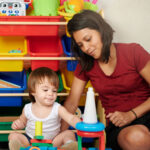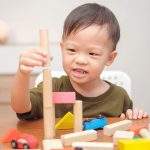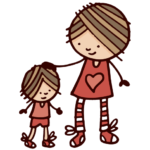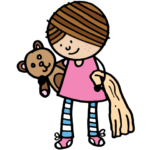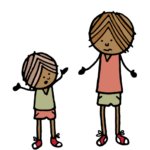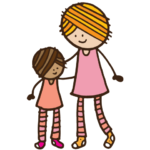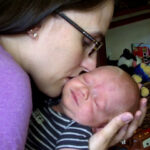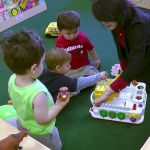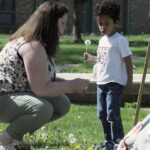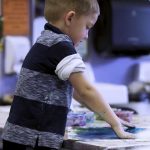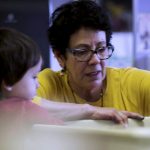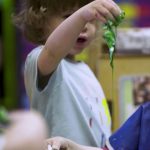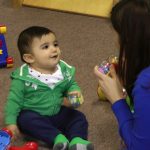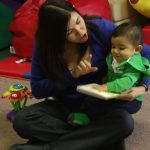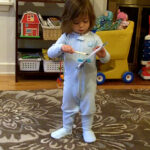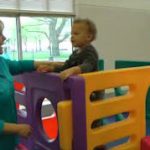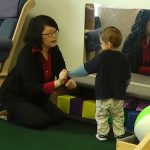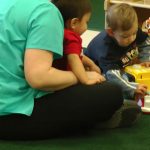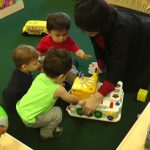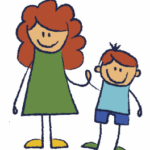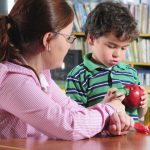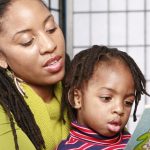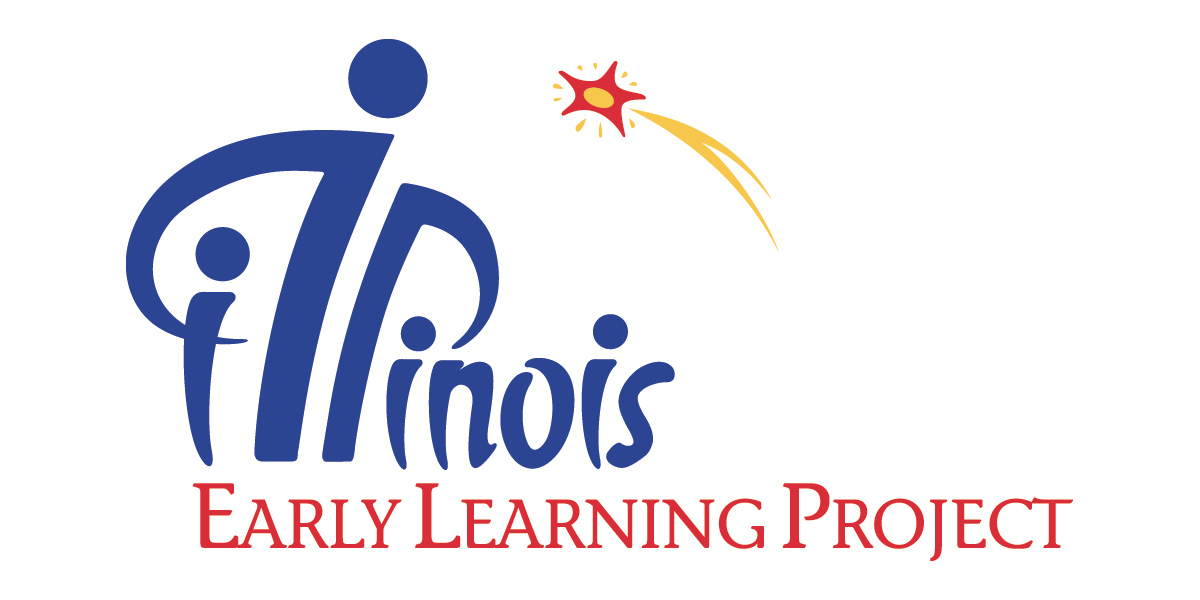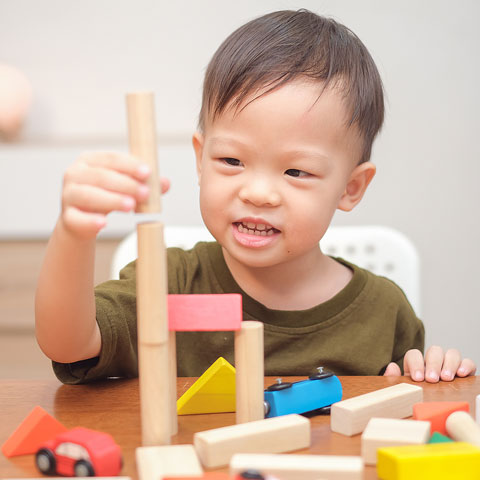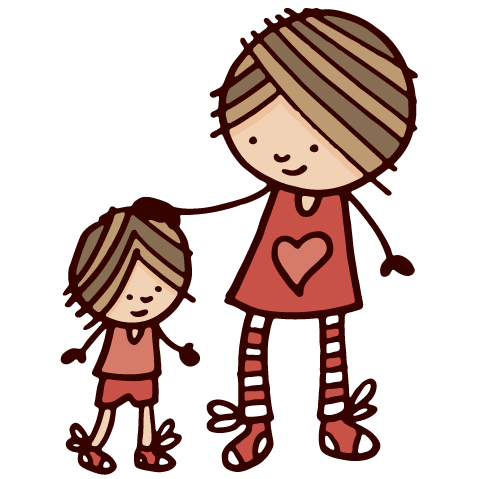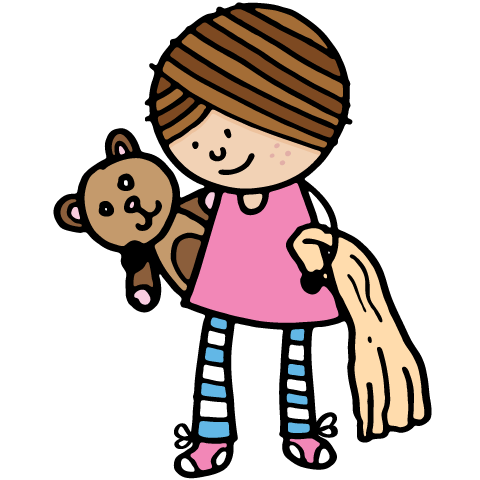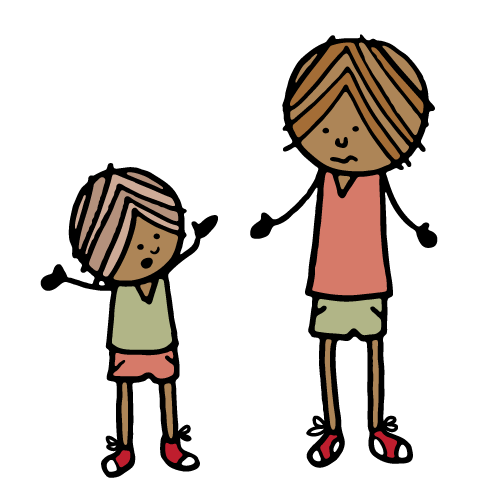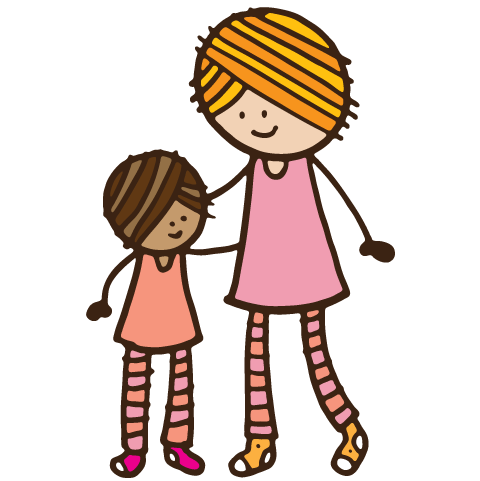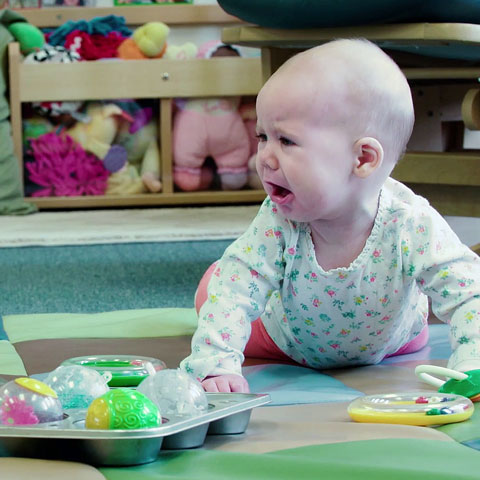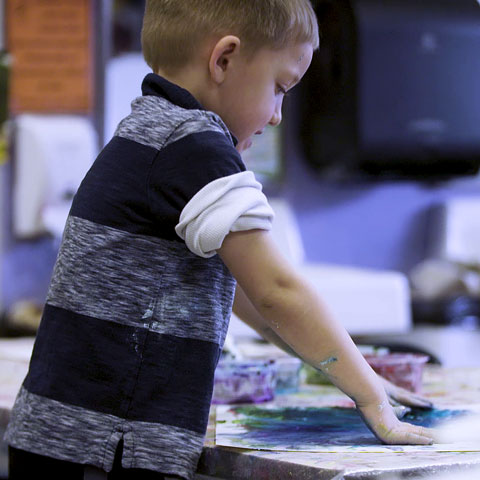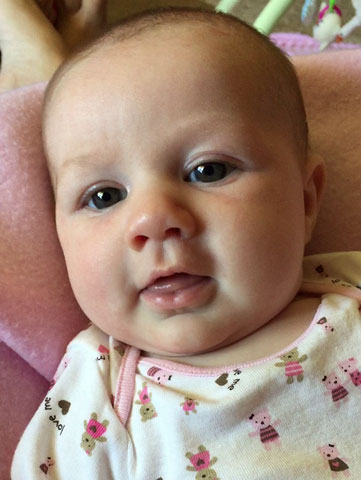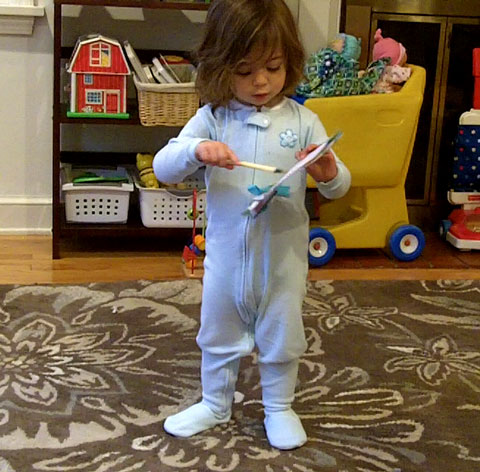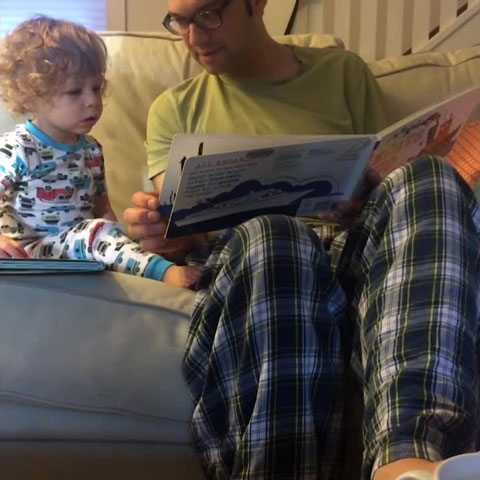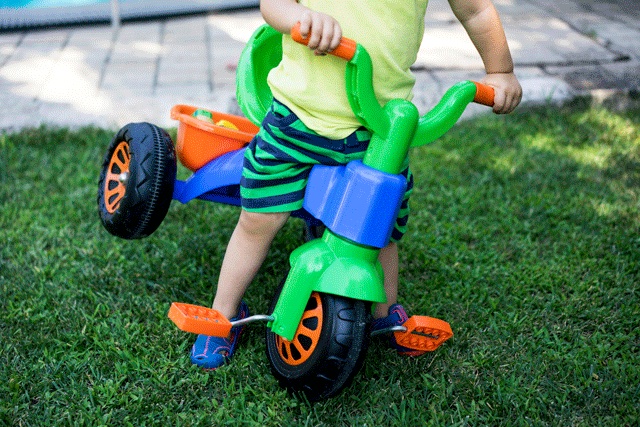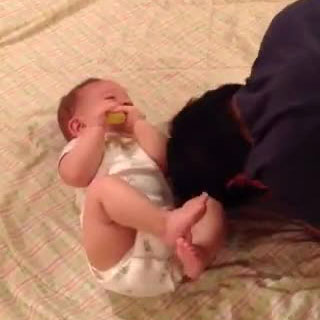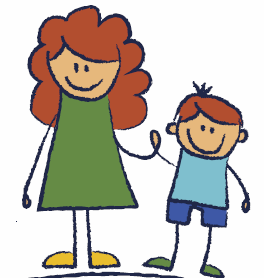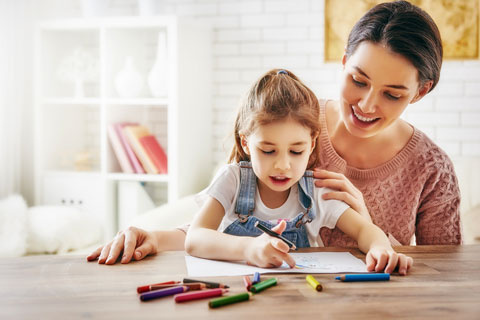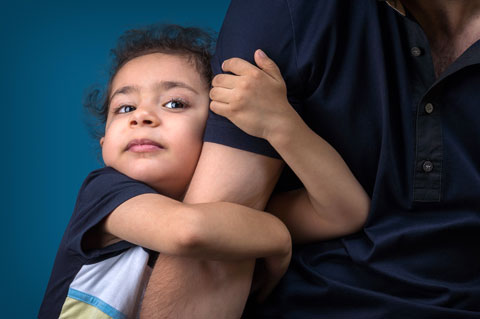Keyword: Adult Child Relationship
-

Parenting in the Early Years
This list provides resources on effective parenting practices and provides information on how parents can help their child stay healthy, be safe, and be successful in many areas.
-

Community Resources for Illinois Families
This list provides information about community resources for families in Illinois.
-
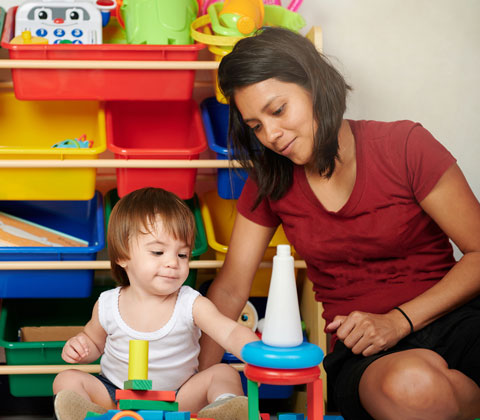
Collaborative Care: Teaming to Support Infants and Toddlers With Disabilities
Like most families, families of children with disabilities use a variety of early care and education programs such as center- or home-based childcare to meet their needs and provide valuable and inclusive learning experiences for their children.
-
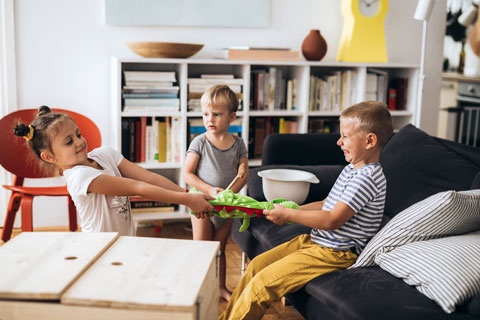
Teaching Your Child to Problem Solve
Families juggle so many tasks every day. Often one of these tasks is supervising young children as they play and solve problems that come up when they try to play alone (e.g., “she’s not sharing” or “he hit me”). In fact, doing this can often prolong or make completing other tasks, such as laundry and…
-
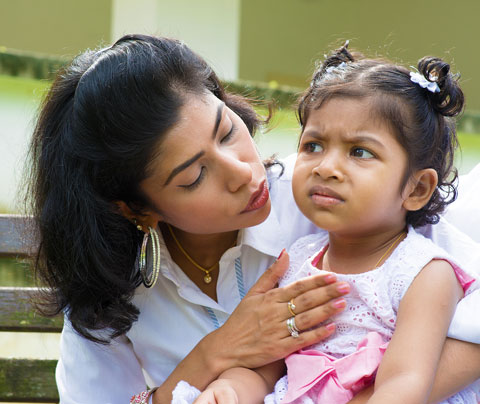
COVID-19 Parenting Pep Talk: Be With Your Child’s Big Feelings
For many of us, changes in routine and lack of choices have brought on feelings of sadness, anger, and frustration. Though we may be experiencing these difficult emotions, as adults we can understand that changes to our daily routines are to help stop the spread of COVID-19.
-
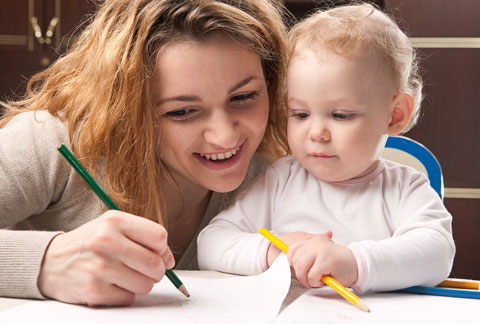
COVID-19 Parenting Pep Talk: Make Time for Connection
Before the COVID-19 situation, many of us, myself included, were used to taking our young children to childcare or preschool on working days. Now, we may be working from home or different hours, and we may have lost many of our predictable daily routines. In addition, many family, friends, and coworkers are no longer part…
-
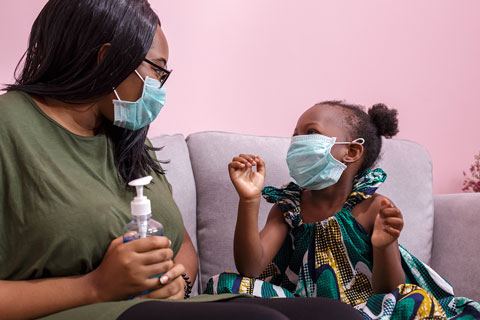
Keep Young Children Learning at Home During Trying Times
Many families with young children are seeking resources about learning at home with young children as the COVID-19 situation evolves in our communities. This is a trying time for programs and families as they work together to keep young children safe, healthy, and learning.
-
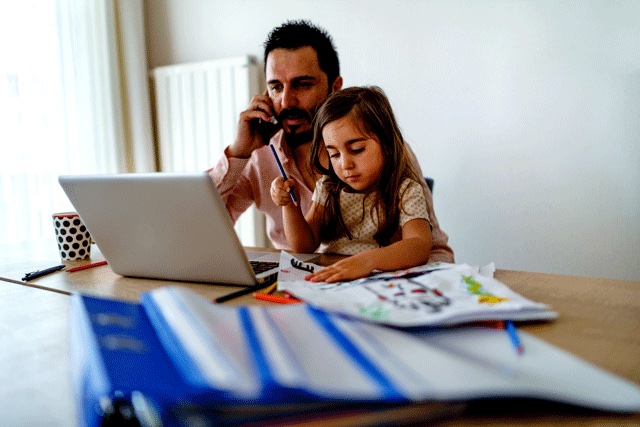
Learning at Home During Trying Times
Many families with young children are seeking resources about learning at home with young children as the COVID 19 situation evolves in our communities. This resource list provides information from the Illinois Early Learning Project and other reliable sources to help during this time.
-
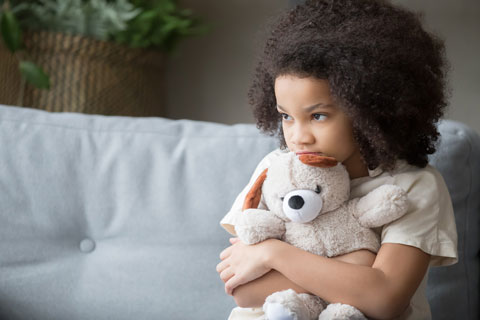
The Impact of Trauma on the Lives of Young Children (Part 2)
On this podcast we are joined by Dr. Deserai Miller.
-
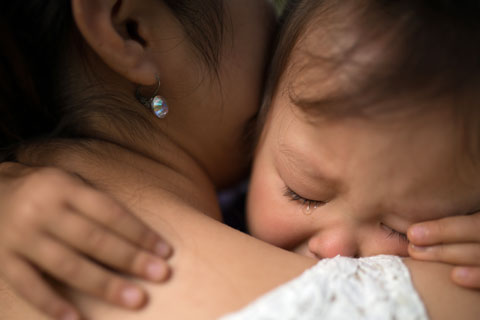
The Impact of Trauma on the Lives of Young Children (Part 1)
In this podcast we interview Dr. Catherine Corr from the University of Illinois at Urbana-Champaign.
-
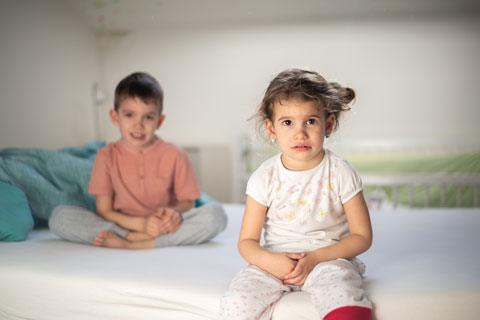
Supporting Families with Young Children Experiencing Homelessness
This tool kit is a resource to help early childhood, school, and community professionals understand how they can support families who may be experiencing homelessness or housing insecurity. IEL also has a resource list, When Children Are Homeless or Housing Insecure: How Preschool Teachers and Caregivers Can Help, which includes additional resources for educators, caregivers,…
-

The Newborn Period
This Early Learning Moment provides an overview of the Newborn Period as explained in Illinois Early Learning Guidelines for Children Birth to Age 3.
-
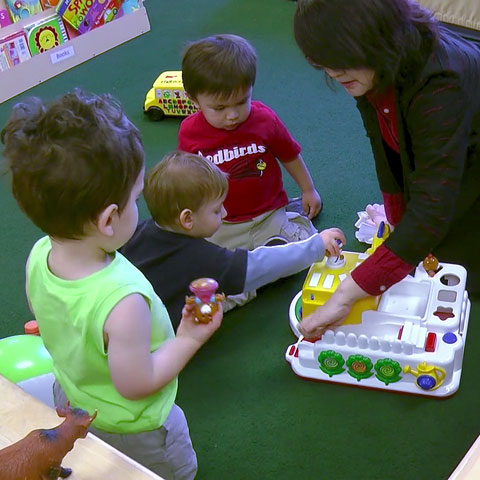
Self-Regulation: Foundation of Development
This Early Learning Moment provides an over view of the Self-Regulation: Foundation of Development section in the Illinois Early Learning Guidelines for Children Birth to Age 3.
-
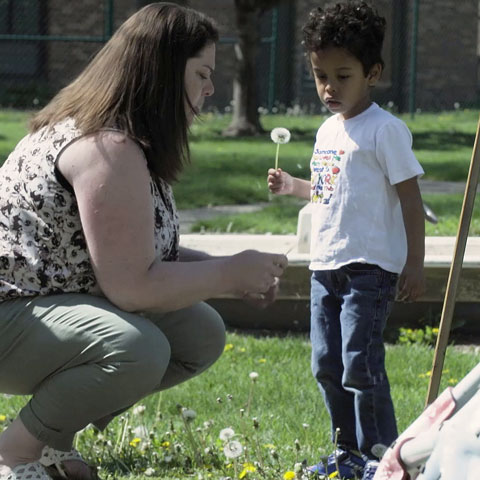
Lots of Dandelions
Nature play presents opportunities for teachers to introduce scientific concepts. In this video, we see a teacher join Fawn and Edwin, both age 4, as they blow the seeds from dandelions growing on the playground.
-
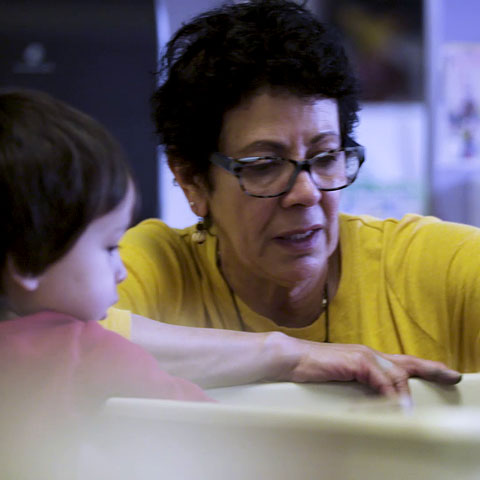
Maybe We Can Make a Road!
In this video, two children are playing at a sensory table filled with gravel, miniature road signs, and toy cars. The teacher introduces two unique words, terrain and yield, to the children as she plays side by side with them.
-
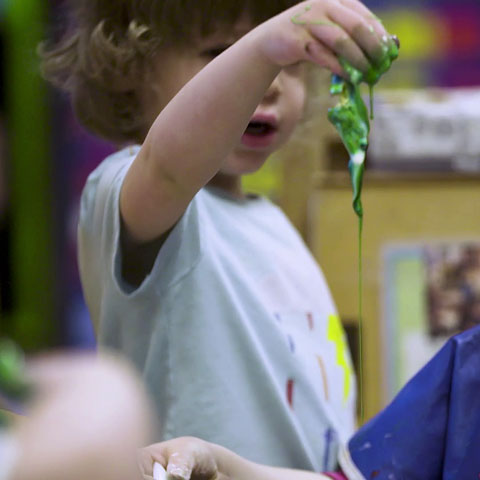
Look at It Go!
Messy play is a rich opportunity for conversation with peers and teachers. Exploring open-ended materials invites children to observe, make predictions, and use complex vocabulary to describe their experiences.
-
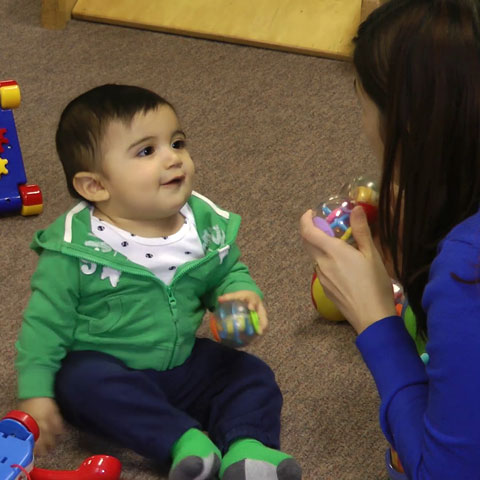
Look What This Can Do!
In this video, we see Mario and his mother, Norma, as they play in a playroom at a local community center. Norma shows Mario different ways to use the toys. When Mario bangs the toys together, Norma encourages his inventiveness by commenting on the creative ways Mario uses the toys to make noise.
-
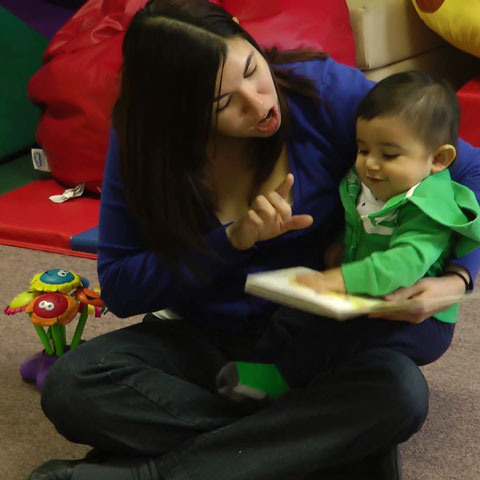
Sing Pío, Pío, Pío
A strong foundation for early literacy learning is created when caregivers and children read together, starting in infancy. Every time a caregiver reads, sings, and talks with a young child, they are building the child’s vocabulary and language skills.
-
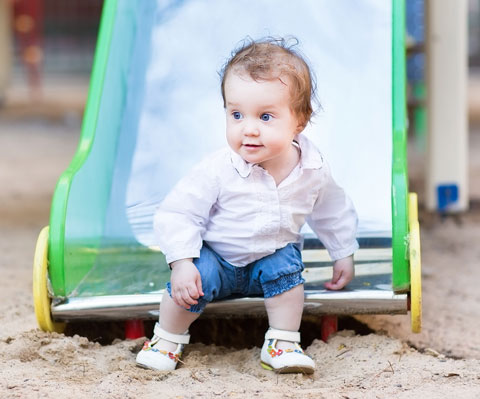
Try and Try Again
Families, teachers, and caregivers want young children to be successful. It can be hard to watch a child struggle or become frustrated.
-
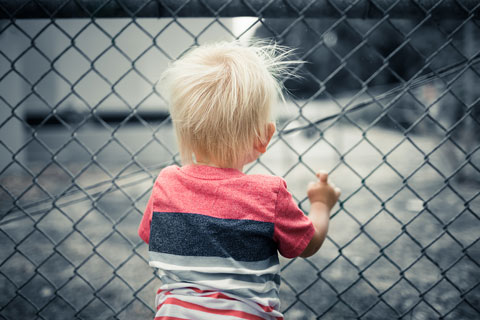
Supporting Resilience in Children Exposed to Domestic Violence
This list contains a variety of resources associated with supporting resilience in children exposed to domestic violence.
-

Helping Children Develop “Impulse Control”
Excitement, joy, anger, frustration, and disappointment are all part of growing up.
-
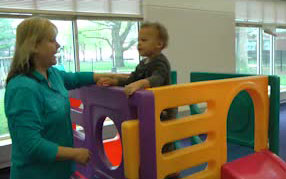
You Made It
This video takes place in the gross motor room of a university laboratory child care and preschool. This room is used for gross-motor activities by all classrooms in the center during inclement weather. Max (21 months) is trying to get up the climber, and the teacher helps him get to the top.
-
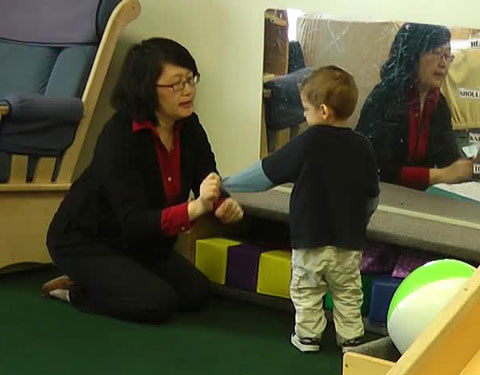
Roll Them Up
This interaction shows the teacher trying to decipher what Jayden is trying to do and what he wants.
-

Ready? Boing!
This interaction shows how the teacher appropriately engages the children by asking Spencer to participate and redirecting Mason when he takes the bear.
-
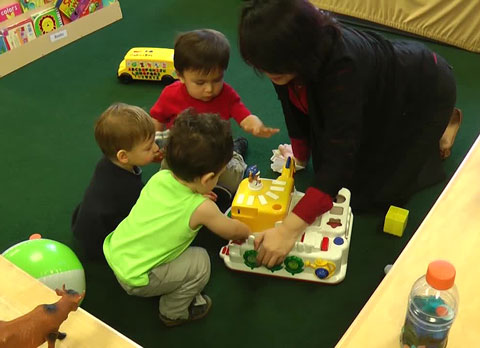
Press Here
Jayden (20 months), Mason (21 months), Spencer (20 months), and the teacher, Sui Ping, are sitting on the floor engaged with an activity box. Sui Ping is demonstrating for Mason how to make the small bear “jump” off the toy by pushing a button. The other two boys are also trying to play with the…
-

Screen Time and Young Children
“Screen time” refers to time spent using a device (e.g., television, game console, tablet, computer, smartphone). In this Q&A, we respond to several questions about screen time and young children.
-
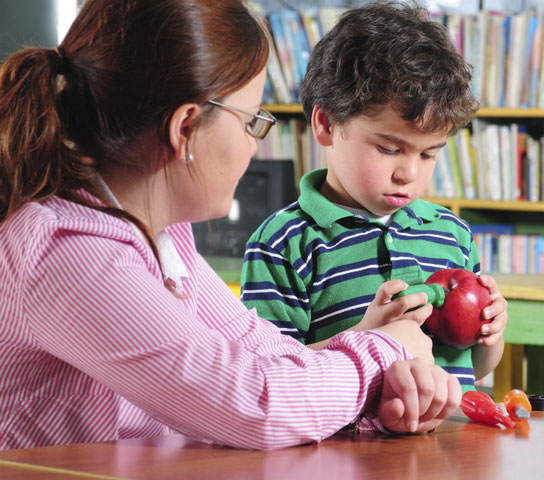
Continuity of Contact
One of the many insights being shared with us from recent research is that different kinds of “stimulation” in the early years contribute to important brain development that has long-term implications.
-
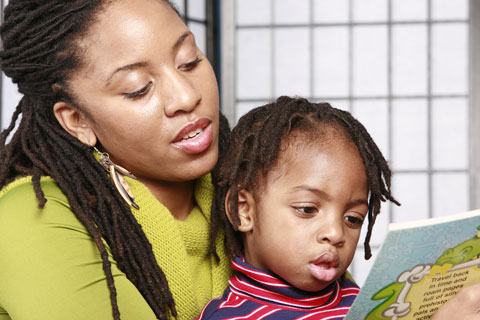
Insight as Part of Teaching Young Children
Many of a teacher’s decisions are based on routines and the normal schedule of activities that require little if any analysis or reflection.
-

Encouraging Words
Encouragement can help children feel good about themselves and develop self-confidence.
-

Making the Holidays Memorable and Meaningful
Here are some ways to focus on the meaning of every holiday season.
-
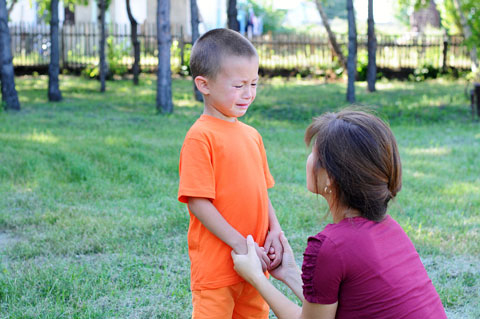
Fuss Management: Comforting the Irritable Child
When you take a calm, problem-solving approach, you help your child learn to calm himself when he is irritable.
-

Say What You Mean! Talking Straight to Children
Sometimes we want to make things go smoothly with our preschoolers—so smoothly that we shy away from telling them clearly what we really mean.


